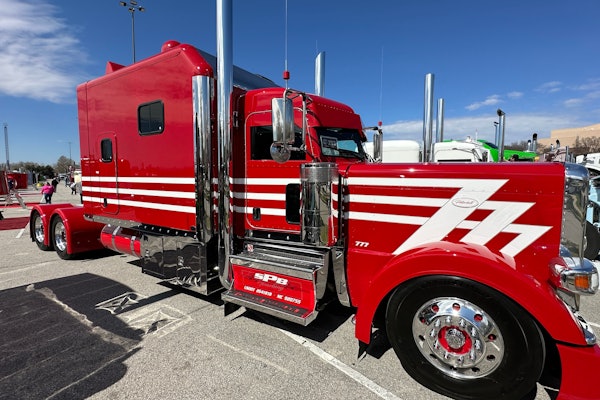Randy Grider
Editor
[email protected]
In October, the Troops 2 Truckers program was unveiled at the American Trucking Associations’ annual convention in New Orleans. This program helps create a career path for active-duty military personnel to train as civilian truck drivers. In addition to providing training for a trucking job while still in the military, it also helps with job placement.
The sacrifices military personnel make during a time of war are tremendous, and it’s great to see programs like Troops 2 Truckers helping servicemen and women who chose to serve their country before starting a civilian career.
But some National Guardsmen and Reserve members – many of whom already are truckers and have gone from weekend warriors to essential members of the war effort with longer and more frequent deployments – are fighting another kind of war when they return home. They are battling for the jobs they left behind.
CBS’s 60 Minutes aired a segment in early November that dealt with this problem. A greater number of companies – including those in the transportation industry – are not honoring a federal law that states an employee called up for active duty has the right to return to his or her job or another position with the same status, seniority and compensation as before deployment. The law is called the Uniformed Services Employment and Reemployment Rights Act or USERRA.
The 60 Minutes report claimed that, according to the Pentagon, more than 10 percent of guardsmen and reservists returning home are finding they are now without a job or have been demoted. Thousands of lawsuits have been filed utilizing USERRA as the basis for their claims. Some companies argue the military’s greater dependency on guardsmen and reservists makes keeping jobs open a financial hardship. And it’s getting more complicated as employers show increasing reluctance to hire reservists who may be called to active duty, though basing hire decisions on that factor is illegal.
Still, there are many companies that – despite the additional costs – are putting country over corporation.
The 60 Minutes segment told the story of Con-way driver Jeff Vineyard, who spent a year in Iraq and has now been deployed again. Con-way spends more than a half million dollars a year to support guardsmen and reservists without any government tax incentives. And the company has gone even further than USERRA requires. In Vineyard’s case, in addition to his health care the company paid, it made up the $10,000 between his Con-way salary and his military pay. Very small companies finally got a 20-percent tax break when President Bush signed the Heroes Earnings Assistance and Relief Tax Act this past summer. Still, one wonders how long even large companies can continue to fund the war effort without similar incentives.
Con-way Vice President Dave Miller says his company has lobbied Congress for tax incentives in light of the Pentagon’s announcement of a new policy to call up the National Guard and Reserve on a regular five-year interval even during peace time.
Miller told 60 Minutes that so far Congress is still discussing it.
It seems safe to assume that some new truckers from the Troops 2 Truckers program will want to remain active in the military as guardsmen and reservists. It’s also likely that many civilian truckers will want to serve the military the same way. But we could see these patriotic choices wane somewhat if it becomes increasingly difficult for these part-time warriors to support themselves and their families after returning from deployment.
If the government wants to increase the activation of guardsmen and reserves on a regular schedule, it needs to guarantee their civilian roles are secure. This means sharing the financial burden being put on employers.
We commend the many trucking companies, like Con-way, that have paid a part of the war’s costs out of loyalty to both employees and country. But private industry can’t continue paying for the military’s game plan forever.
Civilian job security should never be an additional sacrifice for our men and women in harm’s way.









